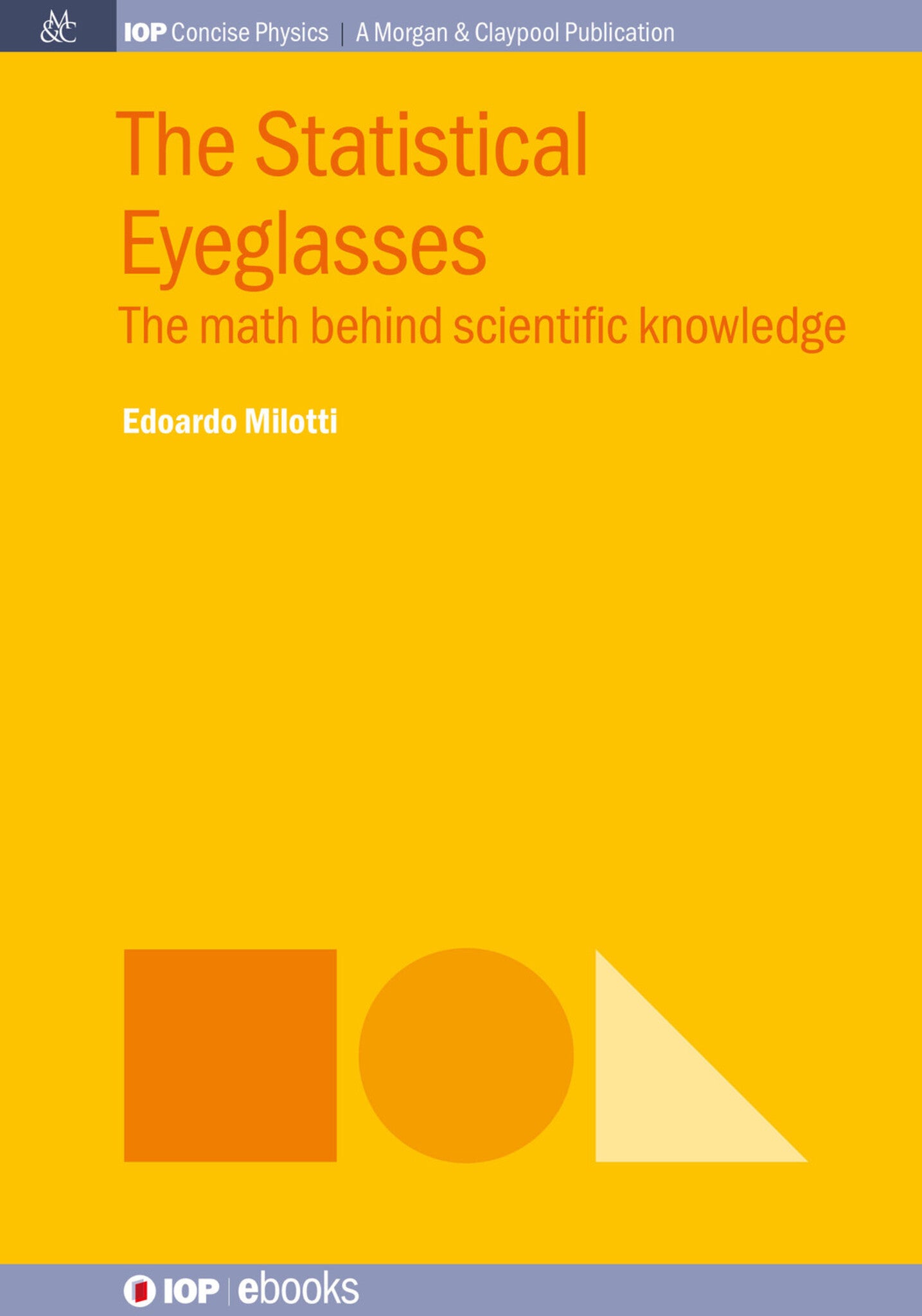We're sorry. An error has occurred
Please cancel or retry.
The Statistical Eyeglasses

Some error occured while loading the Quick View. Please close the Quick View and try reloading the page.
Couldn't load pickup availability
- Format:
-
01 November 2018


SCIENCE / Physics / Mathematical & Computational, SCIENCE / Applied Sciences, SCIENCE / Physics / General

Preface
1 Models of Nature
2 Randomness 2.1 What is random? 2.2 How does randomness show up in nature? 2.3 Random and deterministic signals 2.4 From noisy data to the likelihood function
3 Bayesian and frequentist approaches to scientific inference 3.1 Bayes’ theorem 3.1.1 A game of boxes: a simple example of Bayesian inference 3.1.2 The initial prior: a critical issue in the Bayesian framework 3.1.3 Moving on to a discrete set of hypotheses 3.2 The same game, and a mysterious result 3.3 Statistical descriptors
4 The Principles of Inferential statistics 4.1 Bayes and the likelihood function 4.2 The “least informative prior” 4.2.1 Maximum Entropy (MaxEnt) 4.3 The principles of inferential statistics
5 Parametric Inference 5.1 Bayesian parametric inference 5.1.1 A fair coin? 5.1.2 Trying different priors 5.2 Frequentist parametric inference 5.2.1 Chebyshev’s inequality and the weak law of large numbers 5.2.2 Frequentist estimate 5.2.3 Maximum likelihood approach
6 Prior distributions and equiprobable events in the physical sciences 6.1 Elementary Monte Carlo method 6.1.1 Uniformly distributed pseudo-random numbers 6.1.2 The acceptance-rejection method 6.2 Transformations of random variables by Monte Carlo 6.3 Bertrand’s paradox
7 Conclusions: the statistical nature of scientific knowledge
Appendices A Short review of some basic concepts A.1 Probability and relative frequency A.2 The basic rules of probability A.2.1 Conditional probabilities A.3 Probability distributions A.3.1 The binomial distribution A.3.2 The Poisson distribution A.3.3 The normal distribution A.3.4 Mean, variance and other moments of a probability distribution A.4 Sample mean and sample variance B Abbreviations Index



